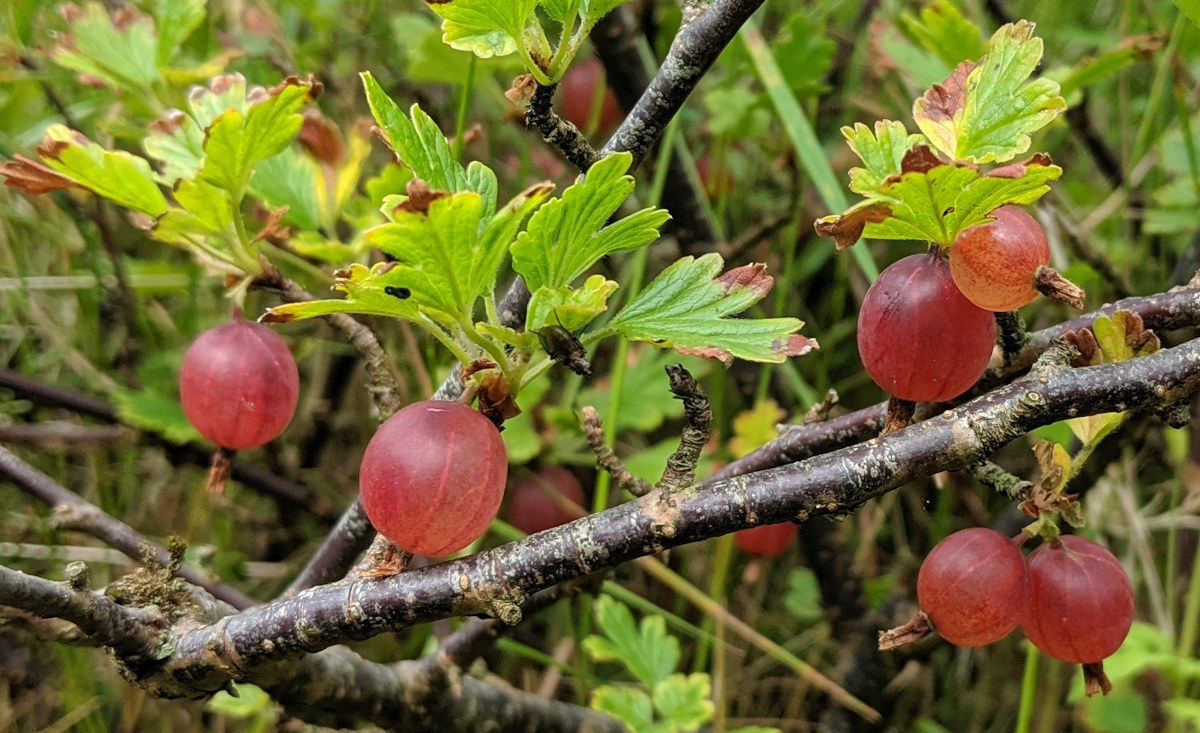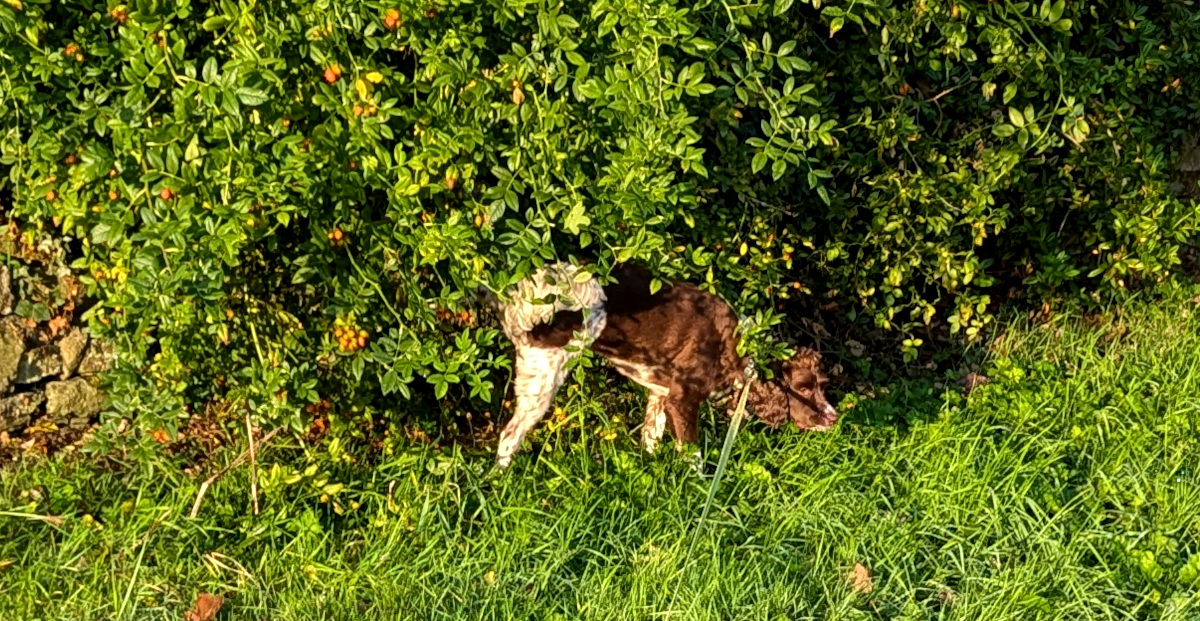The rules of foraging.

Foraging has many benefits, both for the individual and the environment. For one, it's a great way to connect with nature and get some exercise. Foraging also allows you to access fresh, organic food that is free of pesticides and other chemicals. By foraging, you can also reduce your carbon footprint by eating food that is grown locally and does not require transportation.
Below: This is my spaniel demonstrating why it is important to only forage from the upper reaches and ignore the lower parts.

It's also important to know the rules and regulations regarding foraging in your area. Some parks and conservation areas may have restrictions on foraging, so it's best to check with local authorities before you start.
Foraging can be a fun and rewarding way to connect with nature, but it's important to do it safely and responsibly.
Here are some general rules and guidelines for foraging:
- Public vs. private property: Always ensure you are foraging on land where it's permitted. Public lands might have specific areas or times when foraging is allowed.
- Protected species: Be aware of endangered species or protected plants that you must not disturb or collect.
- Permits: Some areas might require a permit or have restrictions on what you can take.
- Know what you're looking for: Before you start foraging, it's important to educate yourself on the types of plants and fungi you're interested in. Make sure you know how to identify them properly and how to distinguish them from any poisonous lookalikes.
- Avoid polluted areas: Do not forage near roadsides, industrial areas, or places where pollutants or pesticides might be present.
- Respect the environment: Only take what you need and leave plenty for the animals and other foragers. Avoid damaging the environment by not trampling plants or disturbing wildlife.
- Leave no trace: Take out what you bring in. Avoid trampling vegetation, and don't leave behind any litter or waste.
- Health considerations and allergic reactions: Be cautious if you're trying new wild foods. Start with small amounts to check for allergies or adverse reactions.
- Cleaning: Properly wash and prepare foraged items. Some plants need cooking to neutralise toxins.
- Do not take more than you need: Make sure you don't take too much, leave enough for others and any wildlife that may depend on those resources. Instead of stripping one area, spread your foraging over a wider area to minimise impact.
- Get permission: If you plan to forage on private land, always get permission from the landowner first. Respect any rules or regulations that may be in place for the area you're visiting.
- Follow local laws: Some areas may have laws or regulations regarding foraging. Make sure you're aware of any restrictions or permits required in your area.
- Stay safe: Wear appropriate clothing and footwear for the conditions, and be mindful of any potential hazards such as steep slopes or poisonous plants. If you're not sure about the safety of a plant or fungus, don't eat it.
- Clean and prepare properly: Wash any foraged items thoroughly before consuming or cooking, and prepare them according to safe food handling guidelines.
By following these rules and guidelines, you can enjoy the benefits of foraging while also protecting the environment and staying safe.
Below: Three foragers poisoning themselves after mis-identification of mushrooms.

When selecting a location for foraging, it's important to choose a place that is safe and legal to forage.
Look for areas that are free from pollution and contamination, such as parks, nature reserves, or other public lands. You should also avoid areas that have been treated with pesticides or herbicides.
